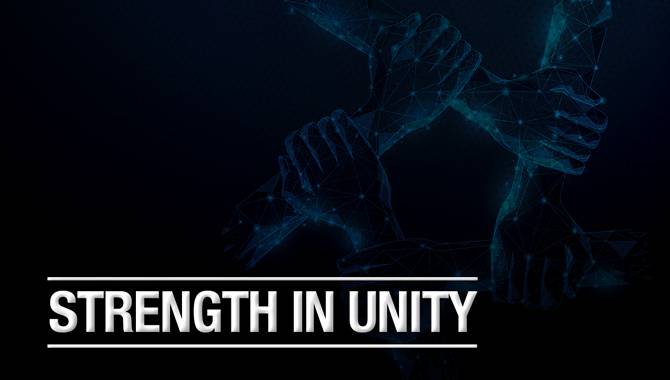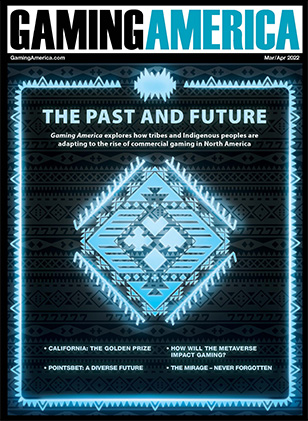
In February 2022, the Mohawk Council of Kahnawà:ke (MCK) and the Six Nations of the Grand River (SNGR) – the former located in Quebec and the latter in Ontario – took an unprecedented move among Indigenous communities in Canada, by entering into an agreement of mutual cooperation on gaming. This was an effort to counter a power play by the Ontario Government, to gain control of the iGaming licensing process in the province. Gaming America had the chance to speak to Chief Mike Delisle of the MCK to learn more about the matter.
What is the nature of the dispute between, on the one side, the MCK and the SNGR and, on the other side, the Government of Ontario?
The story starts about two years ago when we learned through our political connections on the federal government side that they were looking to introduce a private members’ bill; which would change and amend the criminal code, allowing the province of Ontario to be able to conduct and manage single-game betting and online gaming for the province. This would exclude the indigenous population from the right to oversee their gaming endeavors.
Going back, two years ago we started discussion with David Lametti, who was the Minister of Justice and Attorney General of Canada. Those discussions have been few and far between since he visited us in March of 2019. We are now broaching the third year in terms of our discussion, or lack thereof, with Mr Lametti’s office. From there, it progressed. We tried to form discussions with the Government of Ontario, the Minister of Finance, of Indian Affairs (as it’s called here in Canada). There was not much success.
The private members’ bill became a government-sponsored bill and then got royal assent shortly after the most recent election. So, it’s law now and they’ve amended the criminal code. This has basically eliminated the avenue for us as indigenous people to have a carveout, which is what we asked for.
We want to be able to continue regulating online and land-based gaming, yet every time a dialogue is attempted with the Government, the talks always stall. They are always sending letters of good intentions to re-open talks but they never follow up on these. And meanwhile, 4 April is still the start date for iGaming to go live in Ontario under the new rules.
So what does that tell us? We’ve had no interaction with them since October. Lametti is not returning our calls. We have the Indigenous Affairs Minister, Marc Miller – who at this point I would hesitate to call a friend – trying to push Lametti, his colleague, to engage with us to try and look for this carveout.
We’re not going to stop. Our company’s going to continue to engage with players in Ontario, and I’m sure they’re going to go after our payment processors, and try to convince people that we’re pirates of the internet and not to be trusted. Meanwhile, all we’re looking for is to continue to provide for our community.
Would you say this is a concerted effort on the part of the Ontario Government and commercial operators to block indigenous operators out of a fast-developing industry?
Absolutely. There’s no doubt in our minds. There are forces trying to put this private members’ bill through their votes. These industry players wanted to make sure that it was a government-supported bill that got the funding that it needed.
What deal could the Ontario Government propose that would satisfy you on your end?
Some type of carveout, where we continue to have an open posture and dialogue with them. But, because we’ve been operating a lot longer than they’ve been in existence, we are looking for two things: first, the continuation of our socio-economic project in conjunction with some territories in the province of Ontario, of which Six Nations is one. Secondly, we are looking for mutual recognition of our gaming authority here, the Kahnawà:ke Gaming Commission. They’re not going away and have licensed a lot of operators. We’re looking for recognition on both fronts.
What does the MCK hope to gain from the recently announced partnership with Entain?
First, they were very supportive of maintaining this relationship with Sports Interaction, the brand they have purchased through Mohawk Online. They are very supportive of our socio-economic project, as we call it, and they continue to want to work with us and maintain that. They already have met with the province of Ontario. So, we are continuing a relationship with a huge partner, someone we hope can pull their weight to assure Ontario that we are legitimate. We’re not doing anything outside of Canadian law. We’ve been operating unchallenged – provincially and federally – for over 20 years. We’re hoping that Entain is sure they know what they’re getting into.
What is the MCK hoping to get out of its memorandum of understanding with SNGR?
We managed to engage with Six Nations, which wasn’t happy with their situation, and several others, who have signed letters of mutual cooperation with us. We are trying to establish – by starting in the province of Ontario but eventually across Canada – a body that is similar to what there is in the United States with the National Indian Gaming Association. It is something that will be by us, for us and with us. We’re looking to expand this socio-economic project with Six Nations, and with other territories in Ontario as well. The piece of the pie we are getting is less than crumbs at this point.
With this in place, the indigenous communities could be regulators. They could be licensing anyone, not only indigenous companies, but any company that would like to become part of that operating world in Canada. If you look at it, there’s no national law in Canada specifying who can do this. It’s been bestowed upon the provinces to do so in the 1985 constitutional amendment.
Would you say that the MCK has the same problems as the SNGR at this point?
I wouldn’t say the same problems. Because they are in Ontario, because they have an agreement that pays them dividends from Ontario Gaming, they’re in a different boat than we are. But our brothers and sisters – whether from Six Nations or from other national territories – are looking to join with us. They are telling the Ontario Government: “You’re not giving us very much. It’s dwindled over the years, and we have an opportunity here to grow; and become part of the online gaming operating and jurisdictional world.”

